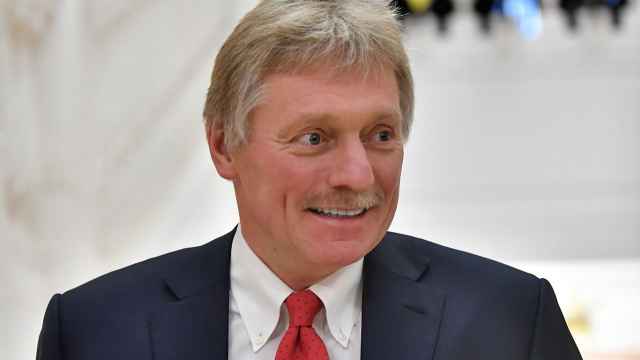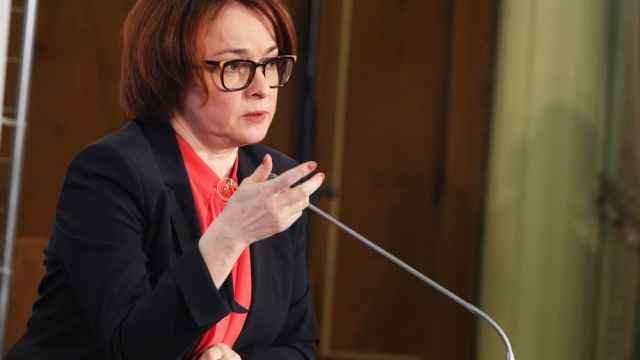Vladimir Putin’s poll ratings are down after a tax hike squeezed cash-strapped consumers. But the Kremlin has opened the coffers to give as much as $8 billion this year to another key constituency: oil companies awash in record profits.
The handouts are part of a complex arrangement under which oil companies agree to freeze fuel prices to lessen the burden on consumers, but are then compensated mostly from a rainy-day fund built up from years of austerity. The government agreed to tweak the deal as it extends the price freeze to the second quarter after the oil companies complained the hand outs weren’t good enough.
The decision to boost the payout at a time when the government is cutting spending and boosting revenues amid the threat of further sanctions highlights the sway oil giants hold in modern Russia. The Finance Ministry has been building up its rainy day funds to safeguard the economy from potential geopolitical turmoil.
“This sets a bad precedent,” said Natalia Orlova, an economist at Alfa Bank in Moscow. “If we say the wealth fund is untouchable, then it should be untouchable.”
Additional Payout
Under an agreement that ran until the end of March, oil companies are reimbursed 60 percent of the price difference between baseline domestic and European fuel prices, if the European price was higher. Payouts will total 300 billion rubles ($4.7 billion), with the bulk coming from the $59 billion wellbeing fund, according to the Finance Ministry.
After some lobbying, the government has now agreed to lower the baseline domestic price for gasoline and diesel, opening the door to an additional payout of as much as 200 billion rubles this year. The Finance Ministry is trying to prevent that money coming from the wellbeing fund as well.
Oil companies took in record profits last year and the potential payout this year works out at about a third of the industry’s total investment plan. The firms shouldn’t be relying only on compensation and can also cover losses using profits from high oil prices, Deputy Finance Minister Vladimir Kolychev said in response to questions.
“Any extra compensation at the expense of energy revenue is unfair toward taxpayers, these are funds for future generations,” Kolychev said.
Falling Popularity
The fuel price freeze itself was aimed at compensating consumers who were left out of pocket by a value-added tax increase and rise in the pension age. The measures have pushed inflation to a three-year high and sent some measures of Putin’s popularity to the lowest in a decade.
The freeze may be extended into the third quarter to prevent a sudden fuel price rise during harvest season, according to Vladimir Tikhomirov, chief economist at brokerage BCS Financial Group in Moscow.
“The state used its administrative channel to freeze prices and that helps contain inflation,” Tikhomirov said. “But raising the payout now shows that oil companies have very strong lobbying power.”
A Message from The Moscow Times:
Dear readers,
We are facing unprecedented challenges. Russia's Prosecutor General's Office has designated The Moscow Times as an "undesirable" organization, criminalizing our work and putting our staff at risk of prosecution. This follows our earlier unjust labeling as a "foreign agent."
These actions are direct attempts to silence independent journalism in Russia. The authorities claim our work "discredits the decisions of the Russian leadership." We see things differently: we strive to provide accurate, unbiased reporting on Russia.
We, the journalists of The Moscow Times, refuse to be silenced. But to continue our work, we need your help.
Your support, no matter how small, makes a world of difference. If you can, please support us monthly starting from just $2. It's quick to set up, and every contribution makes a significant impact.
By supporting The Moscow Times, you're defending open, independent journalism in the face of repression. Thank you for standing with us.
Remind me later.






